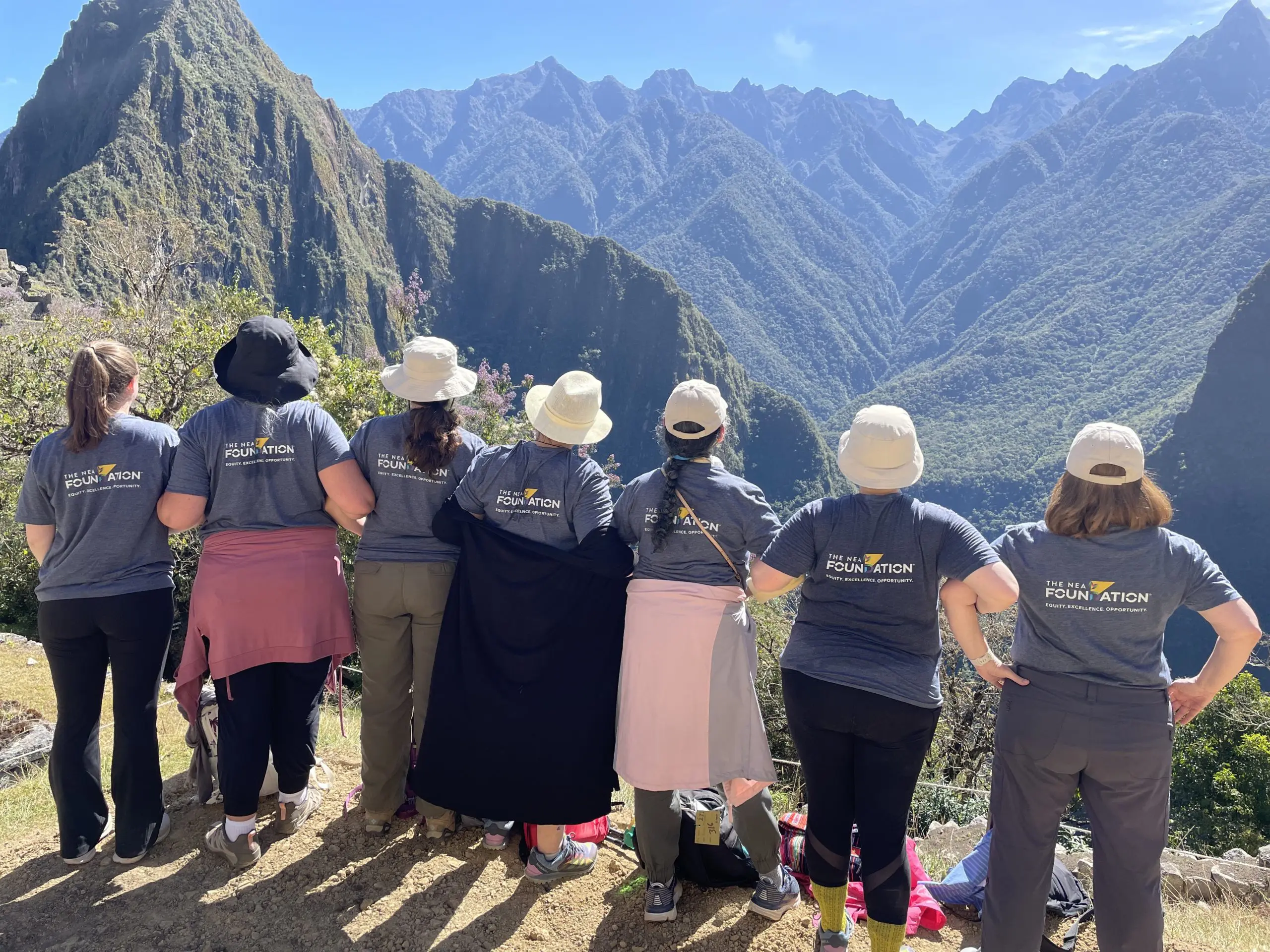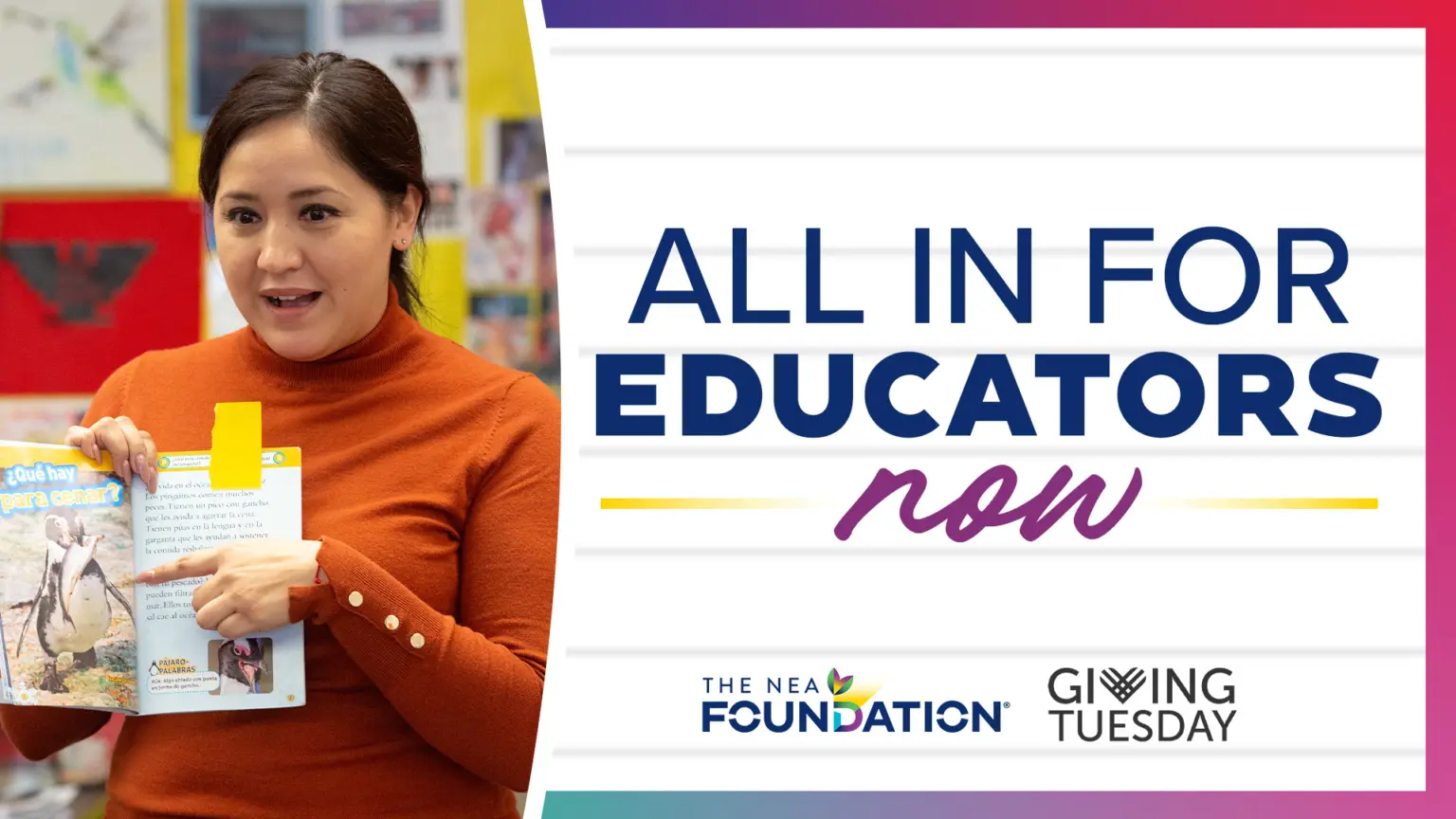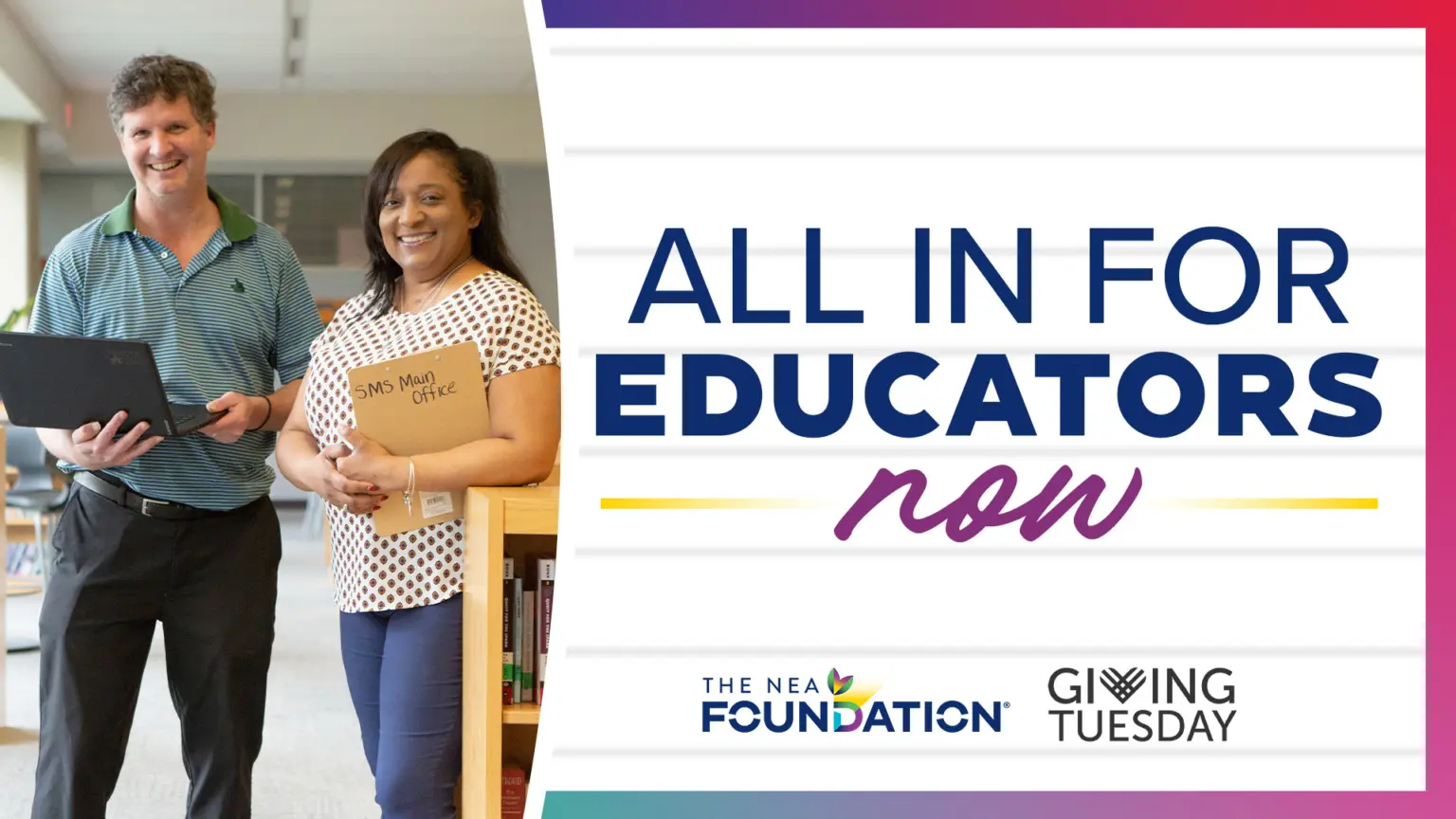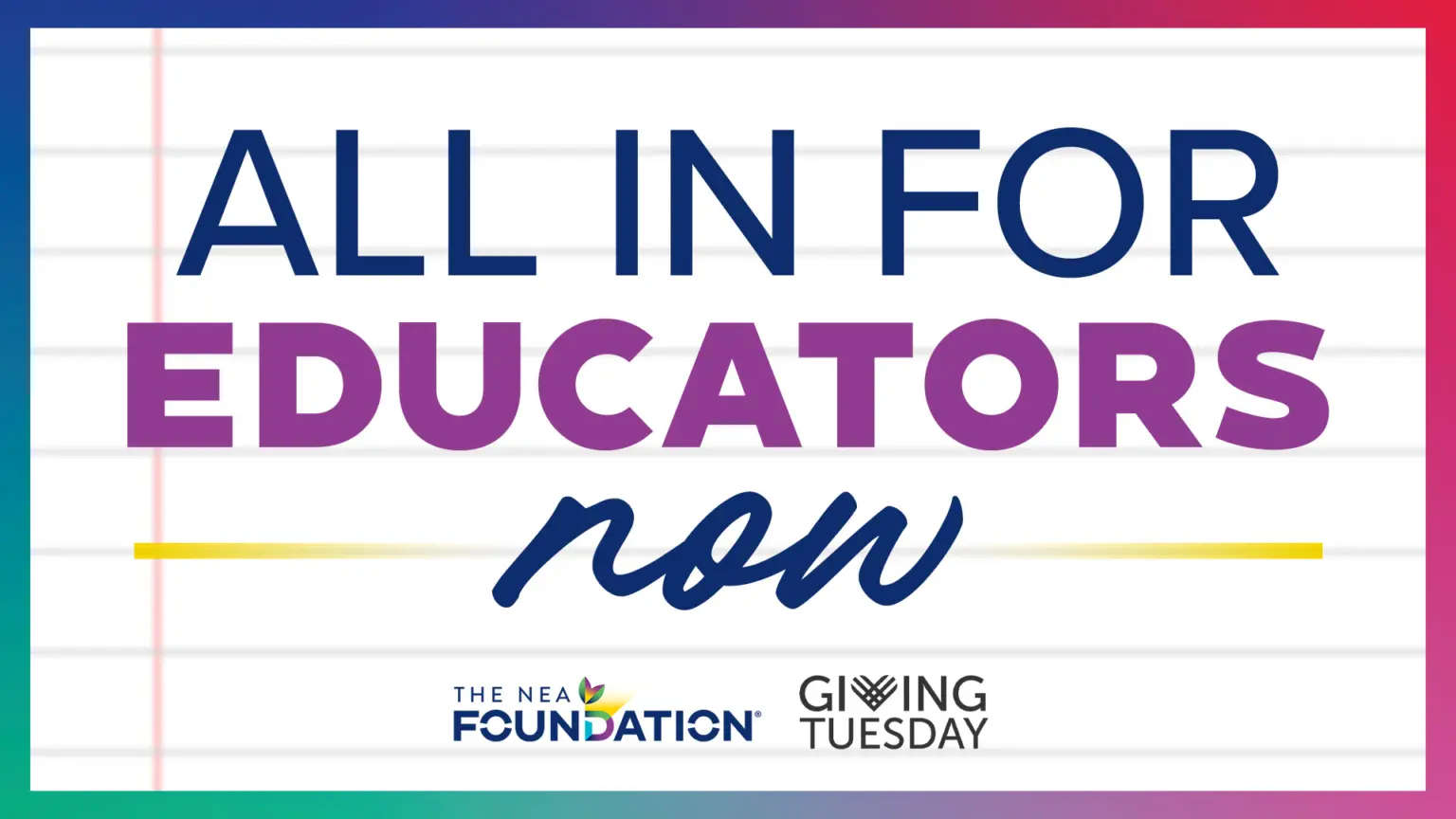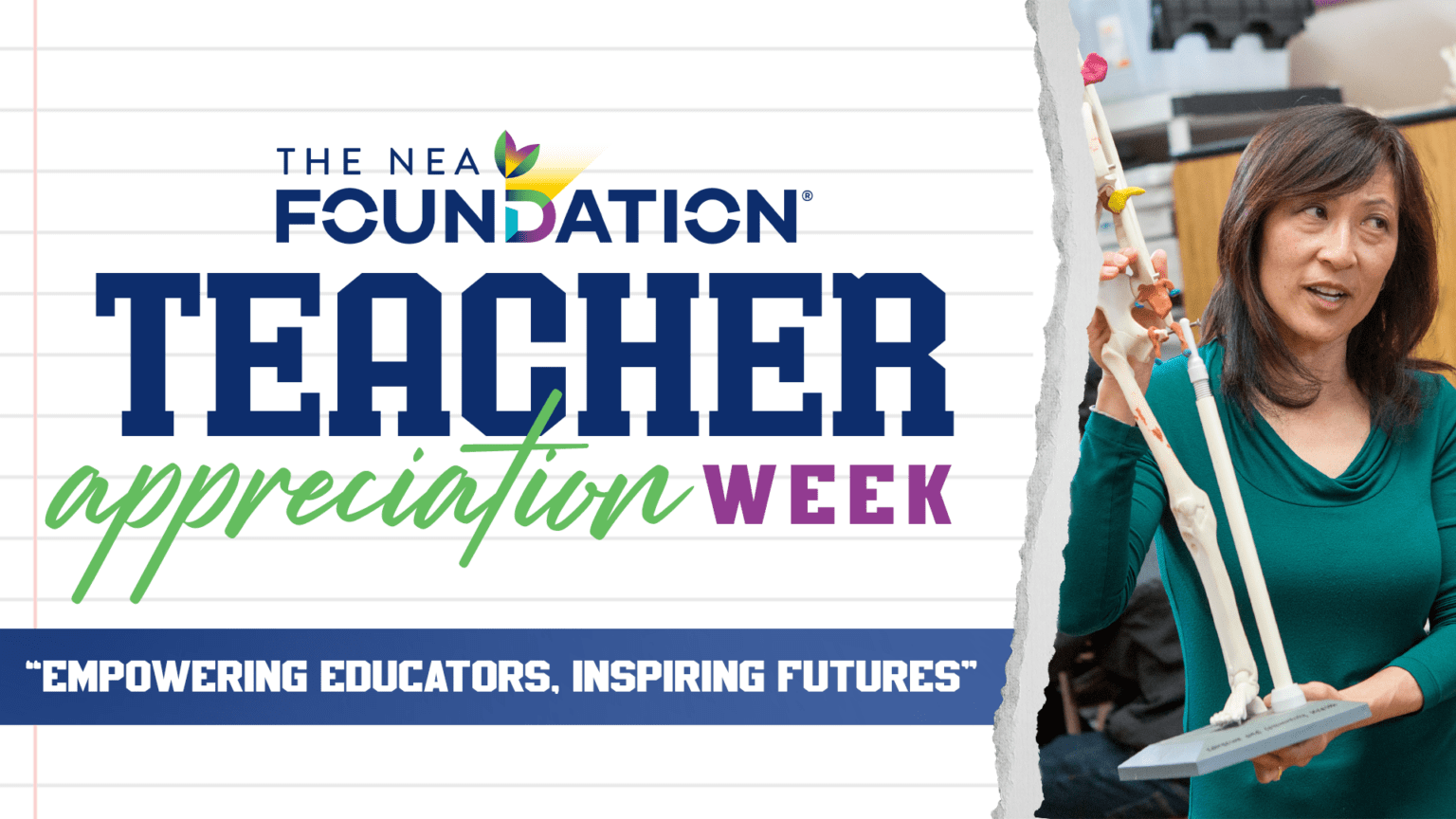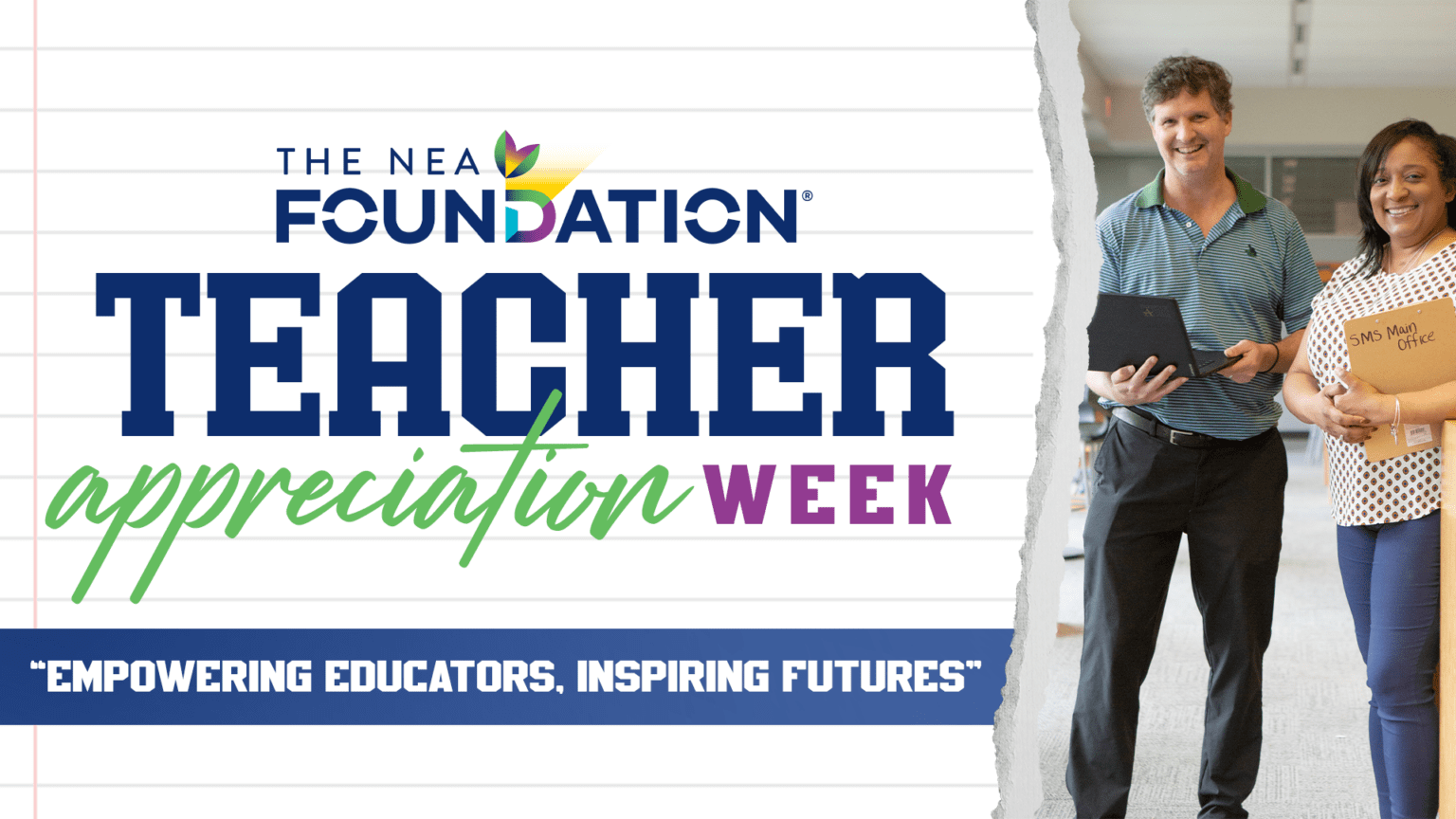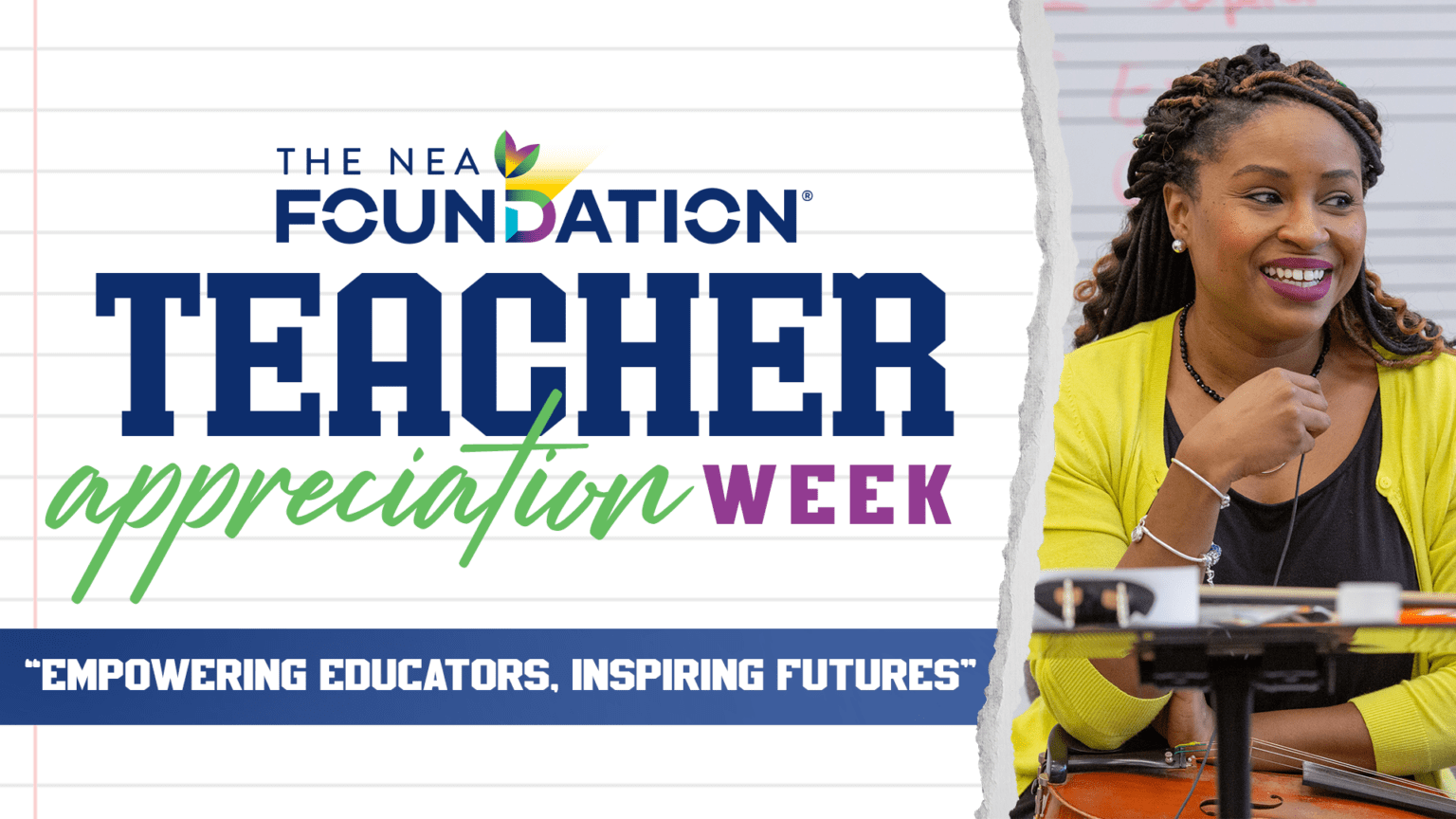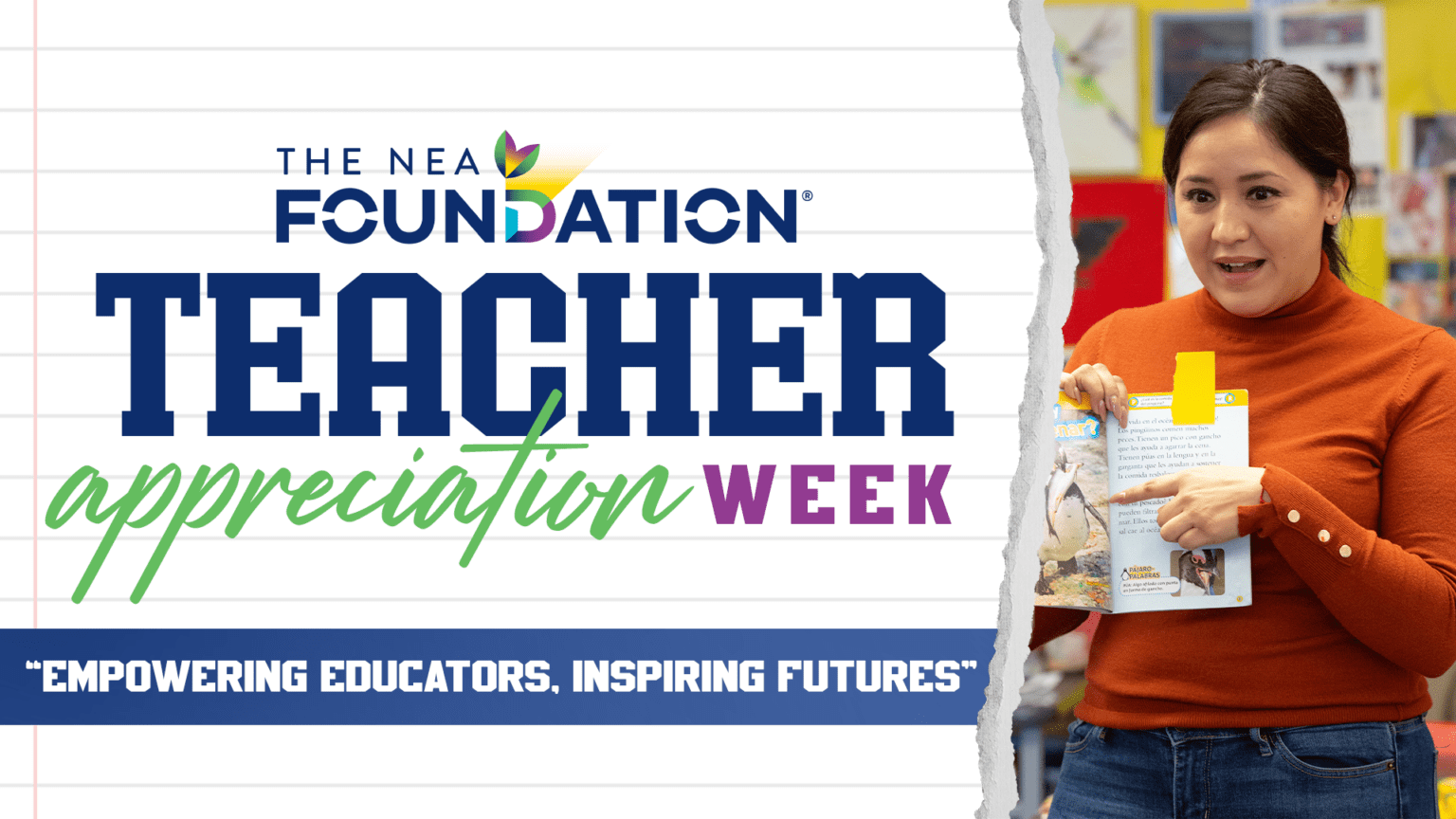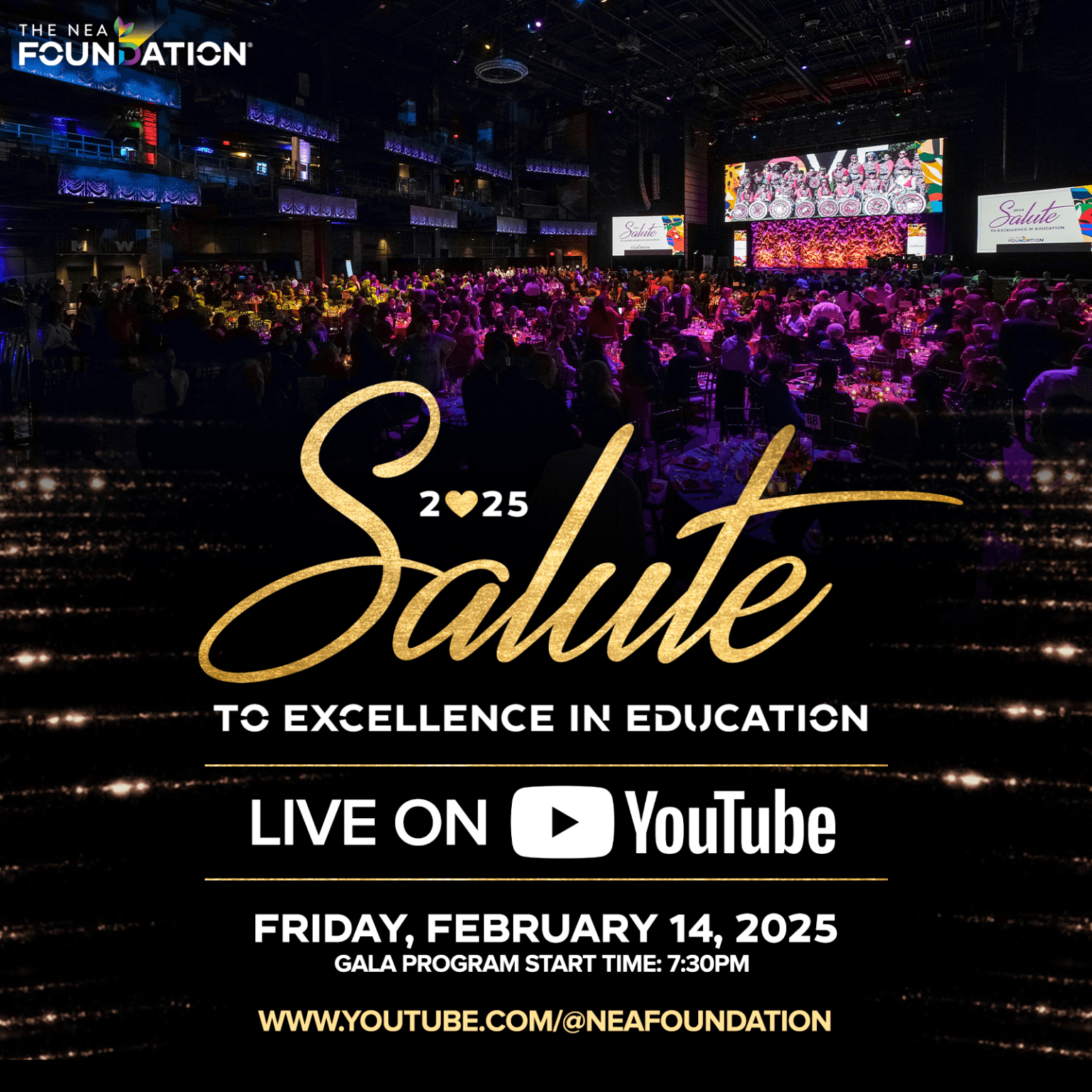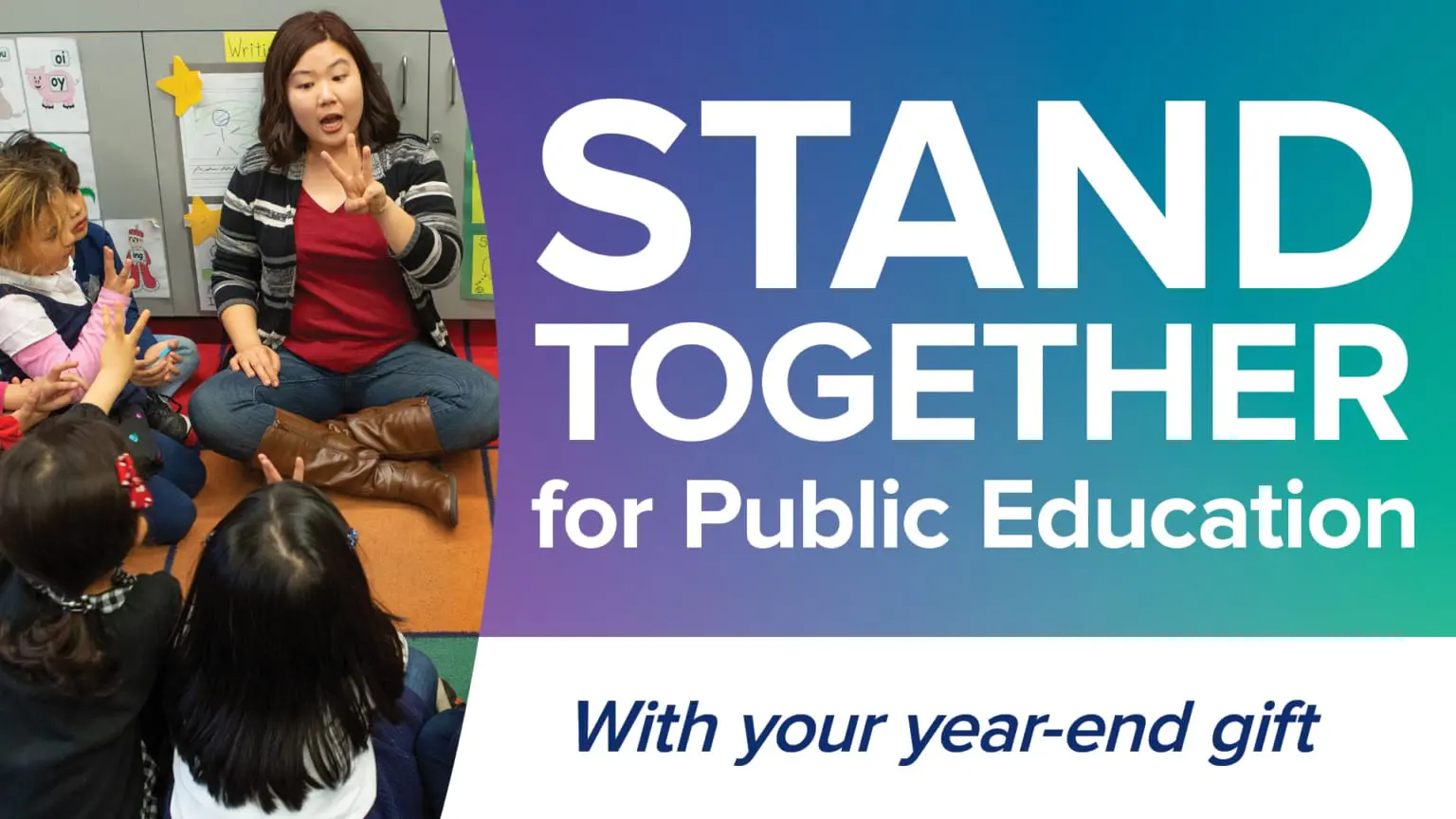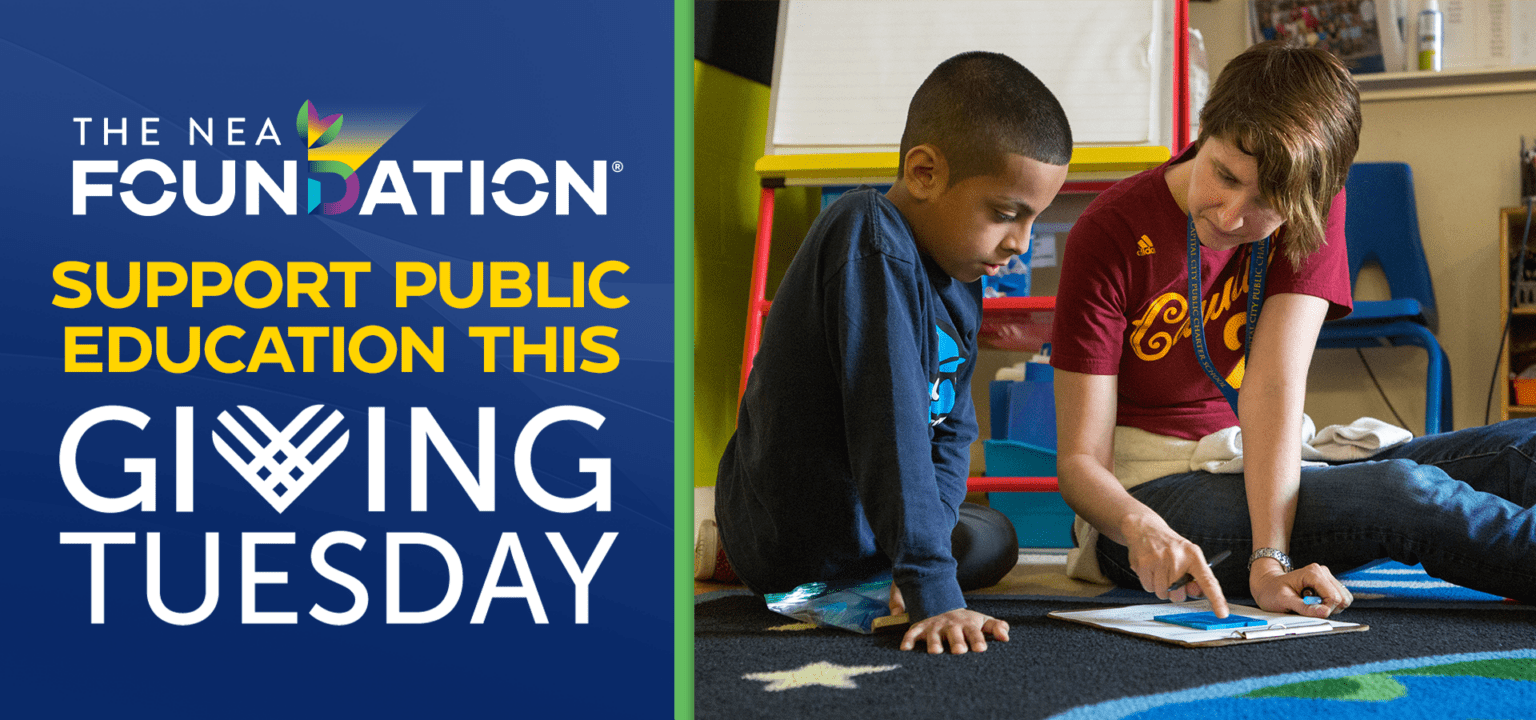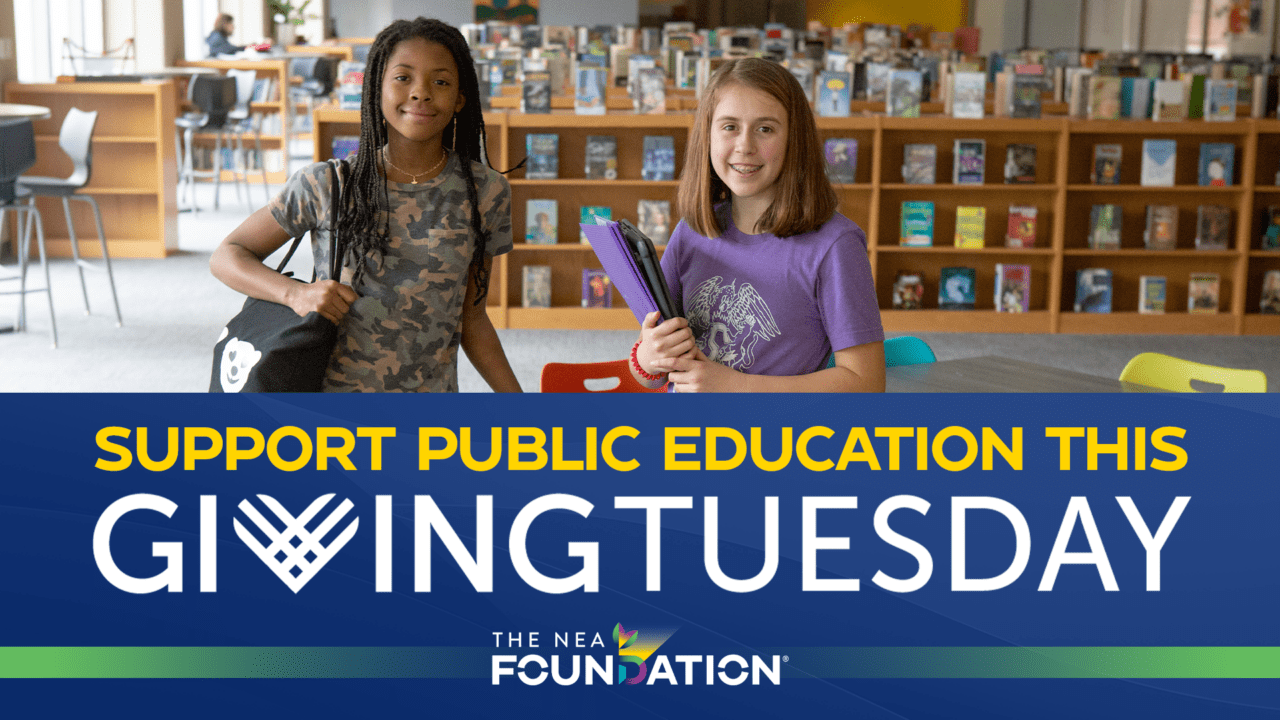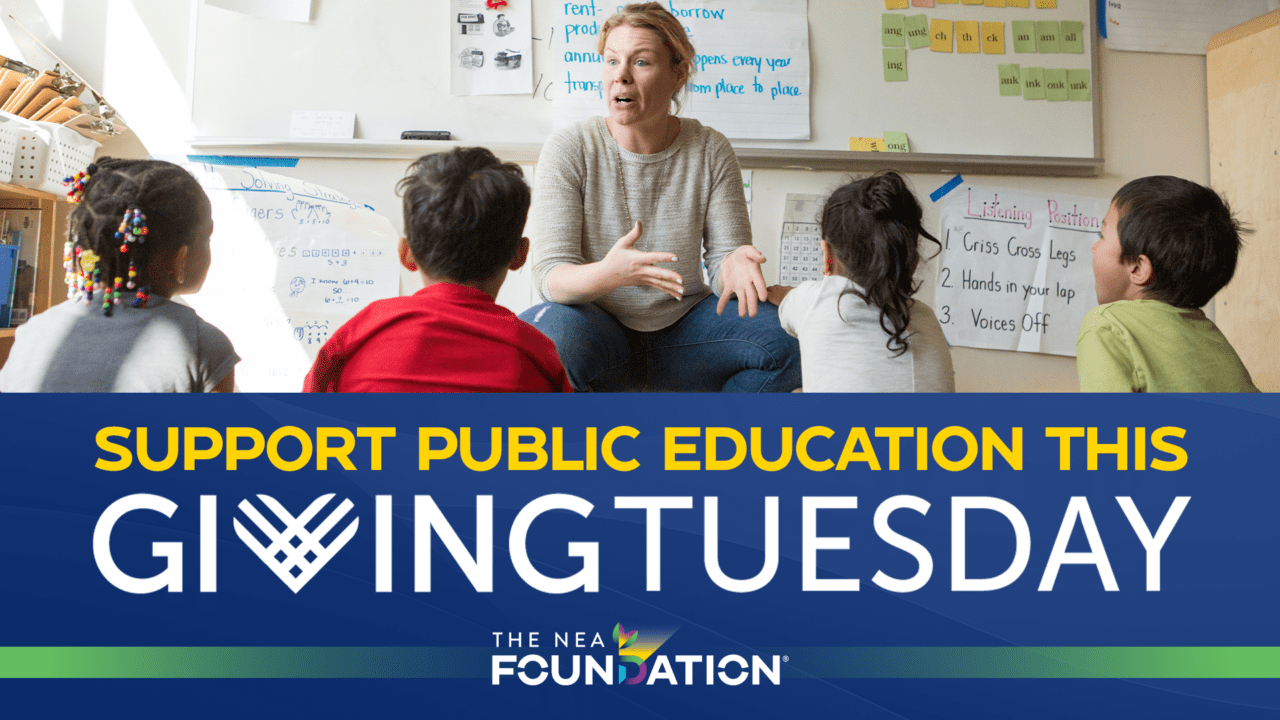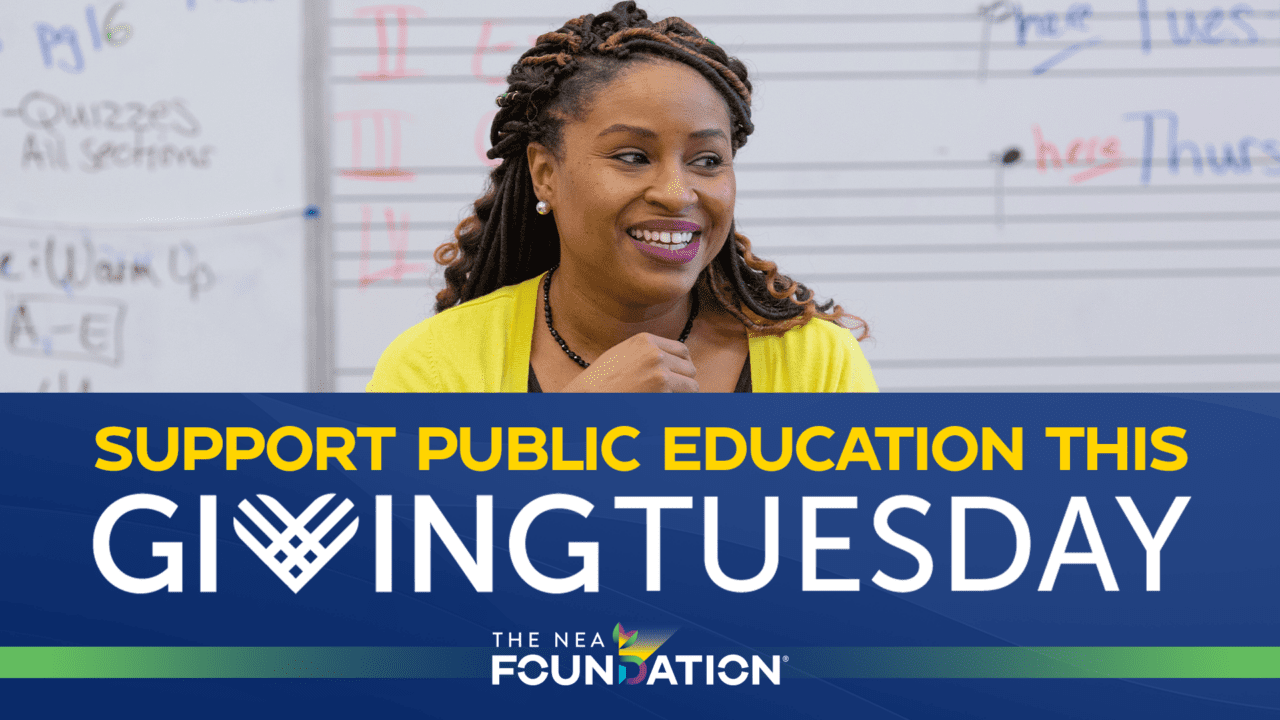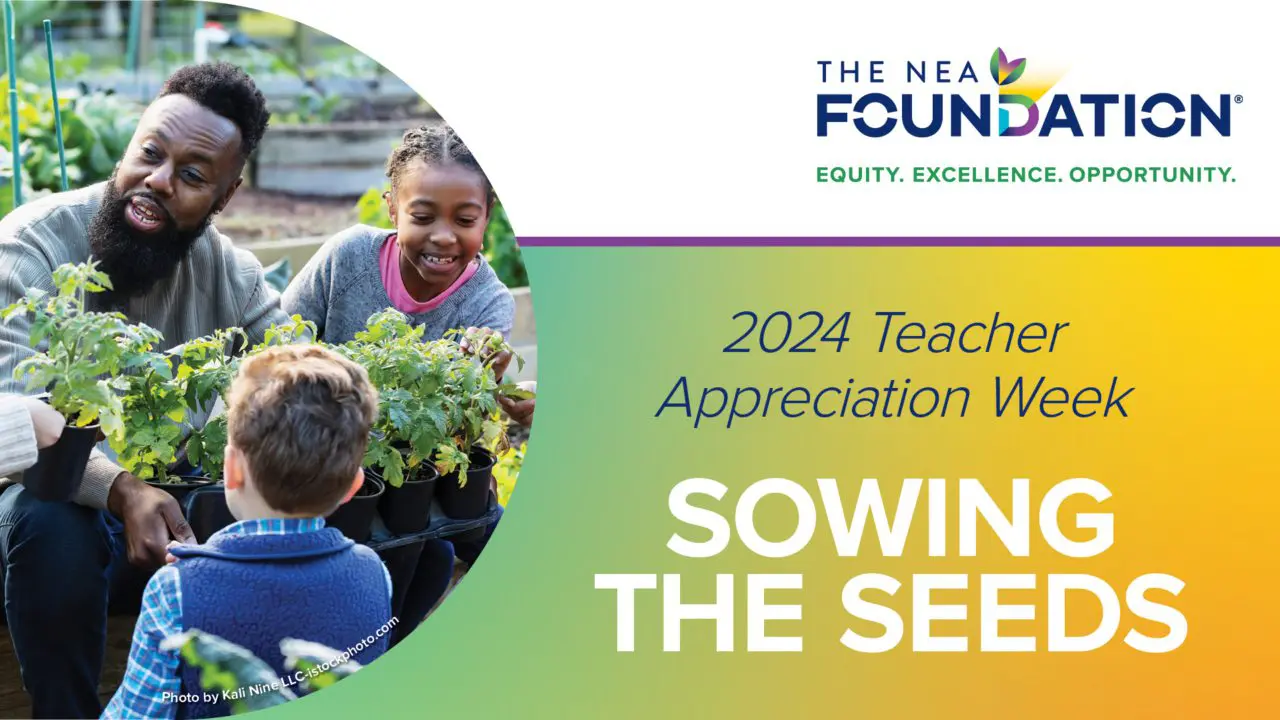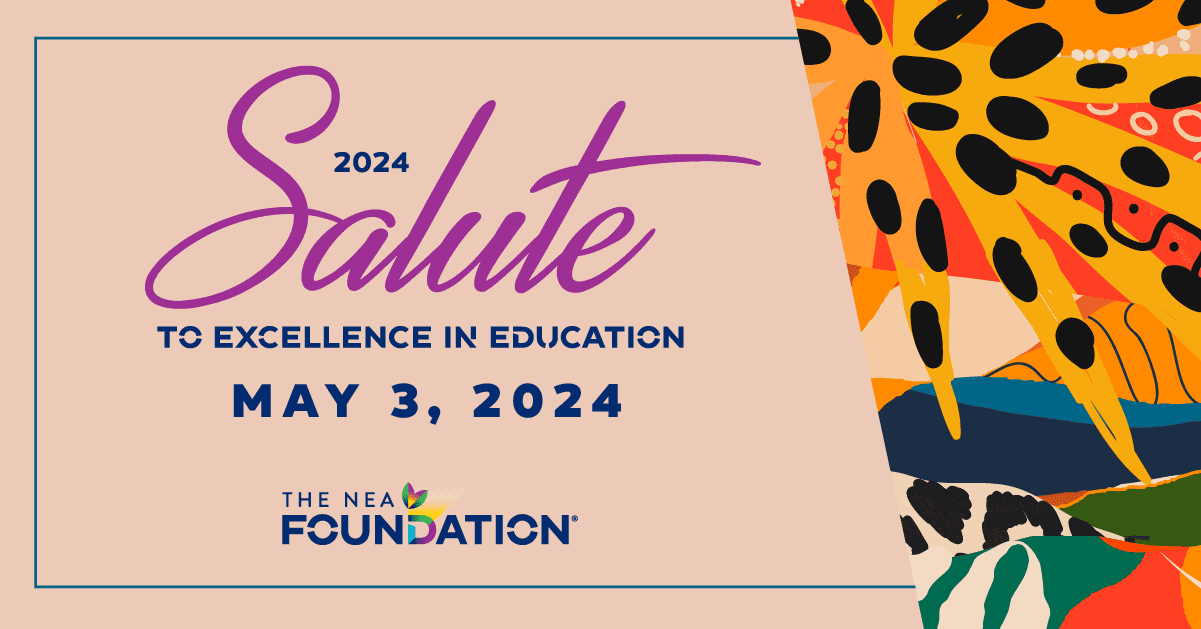The team at The NEA Foundation is proud of Program Officer Isabelle Cooksey for all that she has contributed to the Foundation’s Global Learning Fellowship program during her five years of service, and excited for her next step as she enters graduate school! To commemorate her time at The NEA Foundation and provide an inside view of the Global Learning Fellowship, we asked her to answer a few questions about her experience with the fellowship and her thoughts on the importance of global learning:
Q: Before coming to The NEA Foundation, you were a Peace Corps volunteer in Uganda. What brought you to The NEA Foundation and how did your experience in the Peace Corps influence your interest in global learning?
I was introduced to the Peace Corps upon graduating college and I thought it would be such a neat opportunity. I was placed at an all-girls primary school in eastern Uganda, which was my first experience on a school campus working directly with teachers and living in the teachers’ quarters. And during my time there, I really realized how important it is to have a place for students to go every day and learn, and how much impact a teacher’s relationship with students can have. So I knew I wanted to stay in the education sector.
I started working at The NEA Foundation in the summer of 2019 supporting a range of programs, and I took a very keen interest to the Global Learning Fellowship program, just from having that initial experience in the Peace Corps, and, connecting with the entire world is a personal interest of mine. I love traveling, I love getting out and about. Actually—fun fact—with the recent field study in Costa Rica, I’ve now visited 23 countries! So, I was really interested in the Global Learning Fellowship. And as I moved up and developed professionally, and had the support of the Foundation’s leadership team, I realized that this could be a career focus for me, and that I could really support the growth and development of the Global Learning Fellowship as program officer. And it’s been a really, really great opportunity that I’m so grateful to have had.
Q: When you think about the future of the world and public education, what do you think makes global learning relevant to educators and students?
In my opinion, I don’t think someone can be an empathetic global citizen without learning about the world around them. So bringing global competencies and world perspectives into the classroom and into communities is an absolute necessity. It blows my mind that bringing world perspectives into a classroom is even debated. It only makes mankind stronger. To have some kind of understanding of what people in another country experience—like their education system, and their day-to-day lives, even if it’s on the other side of the world—it only makes the world stronger. The fact that it’s ever debated that we shouldn’t be learning about the world around us is, in my opinion, a little ludicrous.
When it comes to education, you can bring stories from other countries and other perspectives into any subject. And that’s what the Global Learning Fellowship is trying to accomplish with the resources we share, not just with fellows but with any educator or anyone who’s interested. Our Global Learning Resource Library is available to anyone. So just having resources out there that are accessible can hopefully make it easy for anyone who’s interested in bringing global competencies into their classroom.
Q: The Global Learning Fellowship is also about building communities of educators. Can you share an experience you’ve had or witnessed that highlights the “fellowship” aspect of the program?
There was one cohort I remember, in 2019—they all traveled to South Africa for their field study, and in the evenings after site visits and activities, they would have “lobby wine” happy hour. After their fellowship ended, the group stayed really close, and then the pandemic happened in 2020, which caused major upheaval for everyone, obviously, but in many ways especially for educators, and they continued having virtual “lobby wine” happy hours. We’re five years out from their field study now and they still have virtual happy hours. And a group of them had a mini reunion last fall in D.C. They connected in a way that was both personal and professional, and these educators come from different backgrounds and live in different places all over the country. I think that’s just a perfect example of the fellowship aspect of the program. The educators are able to rely on each other, learn from each other, and support each other, years past their fellowship experience.
Q: What are you most proud of about your time leading the Global Learning Fellowship?
The project I’m most proud of is definitely our annual spring Global Learning EdCamp. We developed the concept with our Global Learning Advisory Council, and we knew we wanted to provide a virtual convening of sorts, so we asked ourselves, what do educators want and need? We decided on having this totally free, open “unconference” where educators could attend from any part of the world to learn a little more about global competency and contribute their own insights and ideas. So it’s a really great place to gain inspiration and resources, both in terms of information about global learning, and in terms of connections with other educators. We’ve done EdCamp for two years now. This year, we had almost 200 people in attendance, representing more than 30 countries. So it’s really, truly a global event.
There are always real connections that come out of EdCamp, too. In this year’s EdCamp, which took place in April, I actually met a Costa Rican educator, Rey Sirakavit, who we ended up meeting in person during the field study in Costa Rica in June. The entire fellowship class visited the University for Peace in San Jose, Costa Rica, which is where Rey works, and she gave a presentation to the fellows on bringing peace and connection into the classroom. It ended up being such a valuable experience that wouldn’t have happened without EdCamp.
Q: What would you say to educators who might be interested in the Global Learning Fellowship but aren’t sure if they should apply, maybe because they’re intimidated by the application process, or they’ve never done a fellowship before, or they don’t have experience traveling abroad?
We definitely have a lot of applicants and fellows who have never traveled outside of their country or even their state before. What I’ve heard from fellows who were traveling abroad for the first time is that they felt so well supported and were able to learn so much from the experience. We also have had fellows with decades of teaching experience, and others with less than five years. The feedback that we get from educators early in their careers is that they are so glad to have these resources and this network to support them as they grow professionally.
On our end, we really want to bring as many perspectives as possible into the fellowship class, so we look for educators who span the entire spectrum of experience with global learning—from absolutely no experience to expert level. Because having that diversity of perspectives makes for a much stronger cohort. What we do look for in any application is that hunger for and commitment to learning more about global perspectives. So, please don’t let your current experience level hold you back from applying, because just wanting to learn more is huge, and that’s evidence enough that the fellowship could really benefit you in your global learning journey.
Q: These are all such great insights. Any final reflections as you embark on your next chapter?
The global learning network is such a small world in a way, and I feel like once you make a connection in the global learning network, you will always be there, and these connections will last forever. I’m really looking forward to connecting with fellows even after my time at The NEA Foundation is over, because of the likemindedness and commitment to connecting the world that we share. I think this world of global learning is one that’s always there and always growing, and there’s always opportunities to continue being connected. I feel really grateful for that.
Applications for the 2026 Global Learning Fellowship cohort will open in December, 2024. Follow us on social media or sign up for our newsletter to stay in the loop about the Global Learning Fellowship and other programs!

